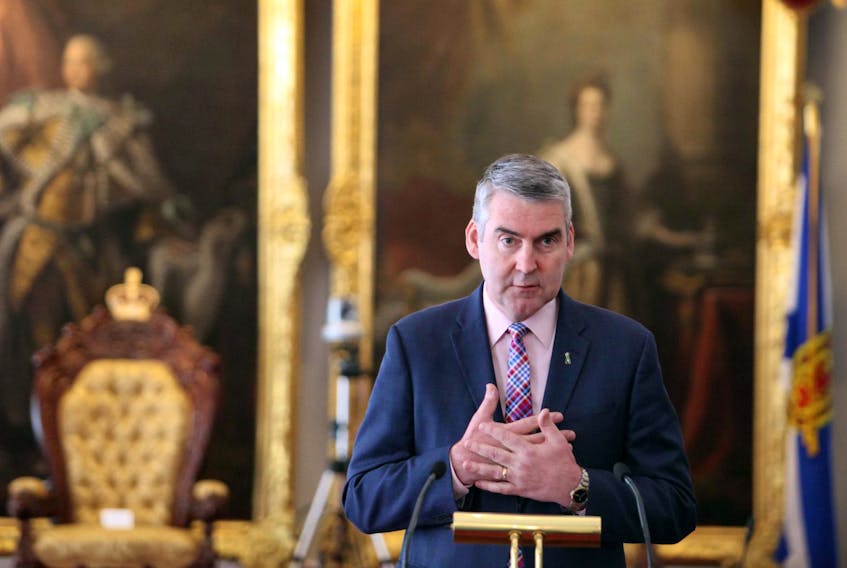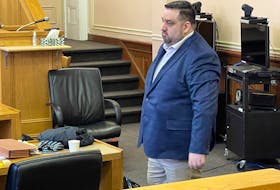Nova Scotia’s move toward presumed consent for organ and tissue donation worries a Halifax medical ethicist.
The Liberal government tabled legislation Wednesday that would enshrine presumed consent for organ and tissue donations for people over 19. The legislation won’t come into effect for 12 to 18 months while the government conducts a public education campaign and beefs up support across the province for clinicians involved in transplants.
Nova Scotia will become the first jurisdiction in North America to implement presumed consent.
“It is possible right now for all Nova Scotians to donate their organs and tissue,” said Jocelyn Downie, the James S. Palmer Chair in Public Policy and Law at Dalhousie University, in an email Wednesday.
“Given that the ethical justification for an opt-out system rests in large part on a presumption that individuals know that they need to register objection if they do not want to be organ donors, the obfuscation in the government’s messaging is deeply problematic.”
The Liberal bill replaces legislation that was introduced by the then-NDP government in 2010 but was never proclaimed. That legislation didn’t adopt an opt-out approach but Downie said it was “very clear” that people had to declare a wish to be an organ donor.
“This change should be subject to full and open public debate. Nova Scotians should be asked whether they want a system in which doctors can remove organs for transplantation if the person has said ‘I want to be an organ donor’ or a system in which doctors can remove organs for transplantation unless the person has said ‘I do not want to be an organ donor.’”
The organ and tissue donation rate has fallen in Nova Scotia over the last 10 years, according to information from the Canadian Institute for Health Information. In 2008, there were over 50 donations, compared to 23 in 2017.
The drop contrasts with the national spike in transplants. In 2017, 2,930 transplant procedures were performed in Canada, an increase of 41 per cent since 2008.
At the end of 2017, there were 2,827 patients active on the waiting list for a solid organ transplant and 1,506 waiting-list patients on hold, meaning they can’t at this time receive a transplant because of medical or other reasons. In 2017, 242 Canadians died waiting for an organ transplant.

“We’re very much in favour of it and we would wish to be able to see that it will be effective.”
- Gary Burrill, NDP leader
Nova Scotians will be given a chance to opt out of the donation program when they receive or renew their MSI health card, Health Minister Randy Delorey said at Tuesday’s news conference on the new legislation.
But Delorey urged people to make sure their family knows their wishes and he emphasized that relatives’ input in the transplant decision will be taken into consideration.
A member of the Canadian Armed Forces emailed The Chronicle Herald questioning how people who don’t use provincial health insurance will record their preferences.
“My question is this, if we end up at a provincial hospital because of a car accident or some other issue (which is likely since the military facilities are only open 0730-1545 Mon-Fri and not open on any holidays ) how do we make it known if we don’t want our organs/tissues harvested for religious or personal reasons?”
A Health Department spokeswoman said “this situation and others will be considered as government makes decisions on the details of the registry over the next year or so.”
According to the National Kidney Foundation’s website, most major religions support transplantation. While the beliefs of Jehovah’s Witnesses rule out most blood-related transfusions, according to that church’s main website, “the Witnesses do not feel that the Bible comments directly on organ transplants; hence, decisions regarding cornea, kidney, or other tissue transplants must be made by the individual Witness.”
Both the NDP and Progressive Conservative parties expressed support for the general intent of the legislation in its move toward presumed consent and were hopeful this would boost organ and tissue donations.
“What we have to be careful of in moving forward is that additional resources and supports will be there for education and awareness . . . is one that will be addressed in moving forward,” Tory health critic Karla MacFarlane said Wednesday.
NDP Leader Gary Burrill agreed. “We’re very much in favour of it and we would wish to be able to see that it will be effective.”
A Doctors Nova Scotia spokesperson said it had no comment on the changes to the organ donation process.
Information on the legislation can be found here.
RELATED:









